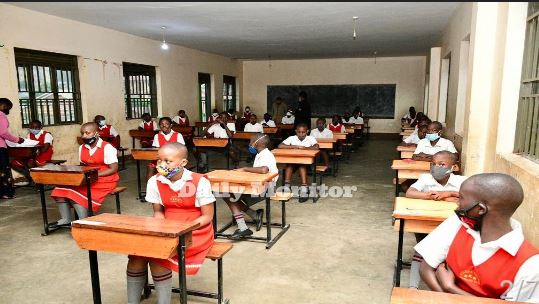Prioritising children’s safety is key as we navigate the Ebola crisis

Ruth Desire
What you need to know:
A good parent-child relationship is essential in enhancing the child’s mental well-being and their problem-solving skills
Following the increase in confirmed cases of Ebola Virus Disease (EVD), the Ministry of Education and Sports together with the Ministry of Health, on November 8 revealed that there would be an earlier closure of schools to ensure children’s safety. Schools, according to authorities, will close on November 25 as opposed to December 9 to 12.
The ministries’ efforts to contain the Ebola Virus Disease and ensure children’s safety are highly commendable. During the outbreak of the Covid-19 pandemic, a similar decision was taken to combat the spread of the virus in learning institutions, which are some of the country’s highly populated places.
The safety and protection of children is a life-saving priority. As leaders, parents, guardians, and society at large, we have a responsibility to ensure that children are safe at home, school, and in the community. As government gave a directive for schools to release learners early, it is equally important that parents and caregivers play their part to ensure children’s safety as they return home beyond the spread of Ebola to avoid what we experienced during the Covid-19 pandemic.
Experience from the two-year Covid-19 lockdown revealed that children experienced a lot of violence while at home. The media reported high cases of violence against children that involved economic violence, physical and emotional violence, and sexual violence that resulted into several cases of teenage pregnancies and child marriages, among others. For example, a May 2021 report by Human Rights Watch; Covid-19 Pandemic fueling child labour, meagre government aid leaves children working long hours for little pay, revealed that Covid-19 lockdown implications forced many children into exploitative and dangerous child labour.
Additionally, pandemics and epidemics have proven to cause stress on families as many parents lose incomes due to measures put in place to combat them, especially restrictions on movement. With the loss of loved ones and incomes, parents and care givers suffer mental health challenges which in most cases they fail to manage and instead transfer the frustration to children inform of violence. Such incidents take a huge toll on children, causing mental health-related issues such as sleep difficulty, anxiety, stress, and depression.
As our children return home, it is important that we prioritise supporting their mental health, social well-being, and ensure violence-free homes and communities.
First, parents need to create valuable time for their children. Get actively involved in their lives, help them understand the current Ebola situation, find out how they are feeling and respond to their fears, and pay attention to behavioural patterns in their lives. A good parent-child relationship is essential in enhancing the child’s mental well-being and their problem-solving skills.
Second, parents need to openly encourage their children to report to them when they experience any form of violence to avoid what we experienced during Covid-19. More so, parents ought to address the risk factors such as leaving children on their own while they go to work, inadequate quality time to bond with children, social norms such as beating as a means of instilling discipline, and forcing them to do hard labour to earn the right to food. It is important to note that while we may not see the emotional damage children experience, the impact cannot be underestimated.
Third, parents ought to embrace positive discipline. It is important to understand what motivates children’s behaviour if we want to guide them without a stick or insults. Just as children have basic physical needs, they also have basic emotional and psychological needs—including the need to be accepted by the people who matter most to them. For children to reach their full potential, these emotional and psychological needs must be met.
Lastly, leaders need to ensure effective implementation of child safety laws and policies and provide access to quality response mechanisms for children experiencing violence. Lack of specialised and timely prevention measures to ensure child safety creates avenues for violence.
Ms Ruth Desire works with Raising Voices.




